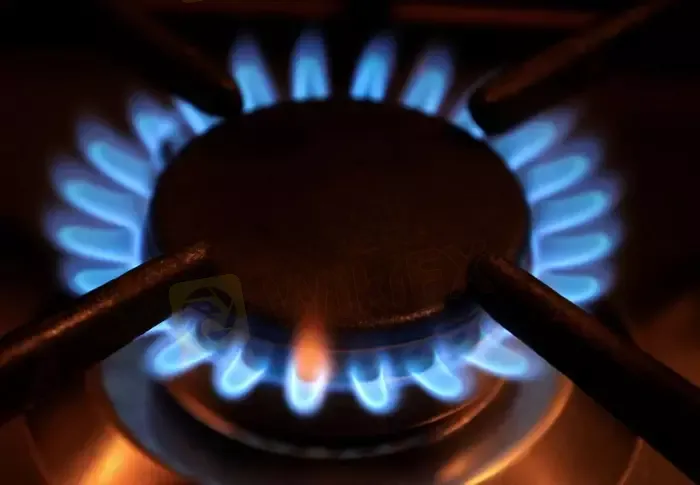简体中文
繁體中文
English
Pусский
日本語
ภาษาไทย
Tiếng Việt
Bahasa Indonesia
Español
हिन्दी
Filippiiniläinen
Français
Deutsch
Português
Türkçe
한국어
العربية
Energy bill fears push German consumer sentiment to new low
Abstract:German consumer sentiment is projected to hit a record low for the third month in a row in September as households brace for energy bills to go through the roof, a survey showed on Friday.

The GfK institute said its consumer sentiment index, based on a survey of around 2,000 Germans, fell to -36.5 heading into September, continuing a series of record lows that began in July, with a revised reading of -27.7 and continuing in August with a downwardly revised -30.9 points.
“Fear of significantly higher energy costs in coming months is forcing many households to take precautions and put money aside for future energy bills,” said GfK consumer expert Rolf Buerkl, who added that doing so was further depressing the consumer climate as there was less money for other purchases.
The institute warned that the situation could become even worse in coming weeks and months if there is not sufficient fuel, especially gas, to heat homes, pushing bills even higher.
German households will have to pay several hundred euros more a year for gas under a levy, to be imposed from Oct. 1 through to March 2024, that is meant to help utilities cover the cost of replacing Russian supplies.
The levy, foreseen as being adjusted every three months, could be set higher depending on market conditions, for example, if Russian energy giant Gazprom further cuts its deliveries via the Nord Stream 1 pipeline.
sep 2022 aug 2022 sep 2021
Consumer climate -36.5 -30.9 -1.1
Consumer climate components AUG 2022 JUL 2022 AUG 2021
– willingness to buy -15.7 -14.5 10.3
– income expectations -45.3 -45.7 30.5
– business cycle expectations -17.6 -18.2 40.8
NOTE – The survey period was from Aug. 4-15, 2022.
The consumer climate indicator forecasts the development of real private consumption in the following month.
An indicator reading above zero signals year-on-year growth in private consumption. A value below zero indicates a drop compared with the same period a year earlier.
According to GfK, a one-point change in the indicator corresponds to a year-on-year change of 0.1% in private consumption.
The “willingness to buy” indicator represents the balance between positive and negative responses to the question: “Do you think now is a good time to buy major items?”
The income expectations sub-index reflects expectations about the development of household finances in the coming 12 months.
The additional business cycle expectations index reflects the assessment of those questioned of the general economic situation in the next 12 months.

Disclaimer:
The views in this article only represent the author's personal views, and do not constitute investment advice on this platform. This platform does not guarantee the accuracy, completeness and timeliness of the information in the article, and will not be liable for any loss caused by the use of or reliance on the information in the article.
Read more

The Ultimate Guide to Automated Forex Trading in 2025
Modern markets are revolutionized by automated trading systems, which now execute 70-85% of all transactions. These advanced automated trading software solutions, commonly called trading robots or Expert Advisors (EAs), leverage algorithmic precision for automatic trading across forex, stocks, and commodities 24/7. By removing emotional interference and executing trades in microseconds, auto forex trading platforms create fair opportunities for all market participants. For those new to automated trading for beginners, these systems provide disciplined, backtested strategies while significantly reducing manual effort.

Will natural disasters have an impact on the forex market?
The forex market is known for its rapid responses to global events, but the influence of natural disasters, such as earthquakes and typhoons, can be less straightforward. While headlines may scream about catastrophic damage and economic disruption, the long-term effects on currency values often depend on a blend of immediate shock and underlying economic fundamentals.

Philippines Deports 29 Indonesians Linked to Online Scam Syndicate in Manila
Online scam groups in the Philippines trick Filipinos into gambling and love scams, from Manila to Bacolod, causing trafficking and pain as police fight back.

Why does your mood hinder you from getting the maximum return from an investment?
Investment decisions are rarely made in a vacuum. Aside from the objective data and market trends, our emotions—and our overall mood—play a crucial role in shaping our financial outcomes. Whether you’re feeling overconfident after a win or anxious after a loss, these emotional states can skew your decision-making process, ultimately affecting your investment returns.
WikiFX Broker
Latest News
How Crypto Trading Transforms FX and CFD Brokerage Industry
UK would not hesitate to retaliate against US tariffs - No 10 sources
FCA Warns Against 10 Unlicensed or Clone Firms
CySEC Warns Against 14 Unlicensed Investment Websites
Top Currency Pairs to Watch for Profit This Week - March 31, 2025
Will natural disasters have an impact on the forex market?
Philippines Deports 29 Indonesians Linked to Online Scam Syndicate in Manila
Navigating the Intersection of Forex Markets, AI Technology, and Fintech
Exposed: Deceptive World of Fake Trading Gurus – Don’t Get Fooled!
AI-Powered Strategies to Improve Profits in Forex Trading
Currency Calculator







